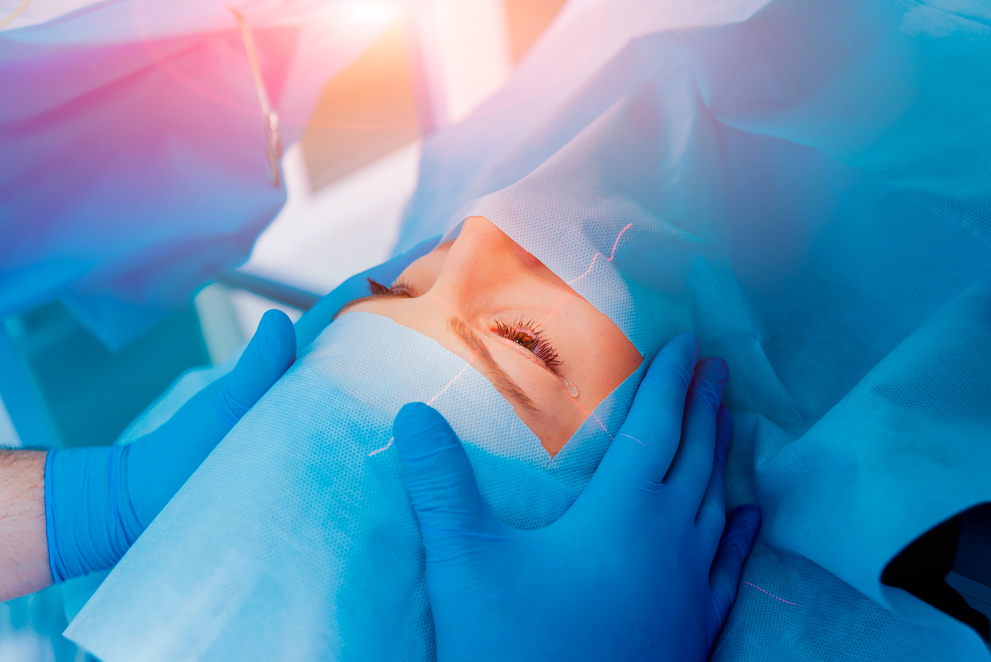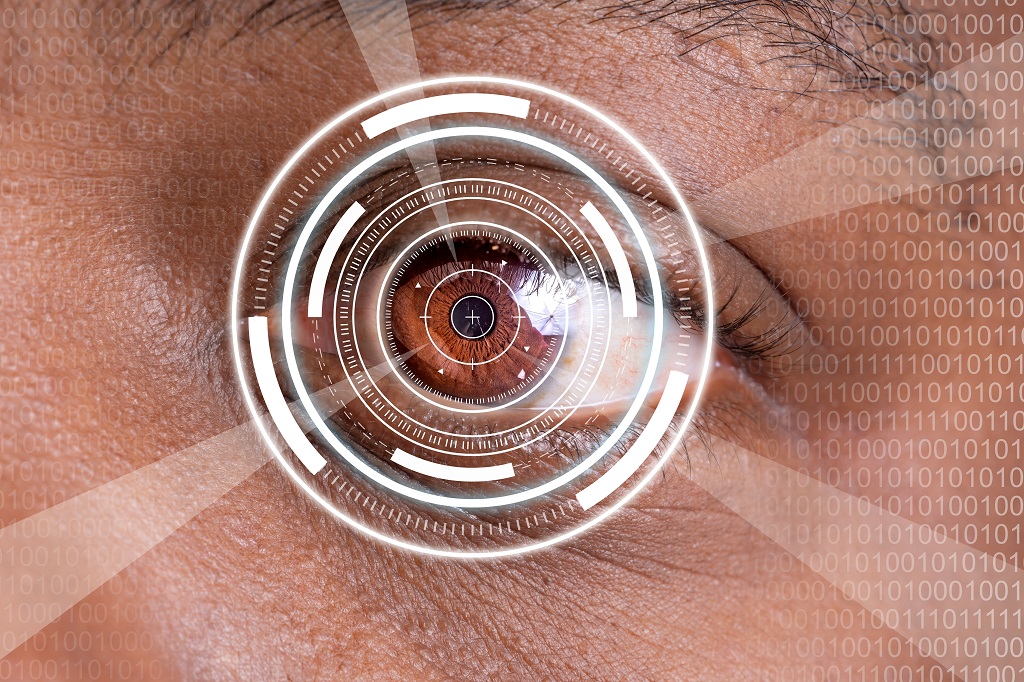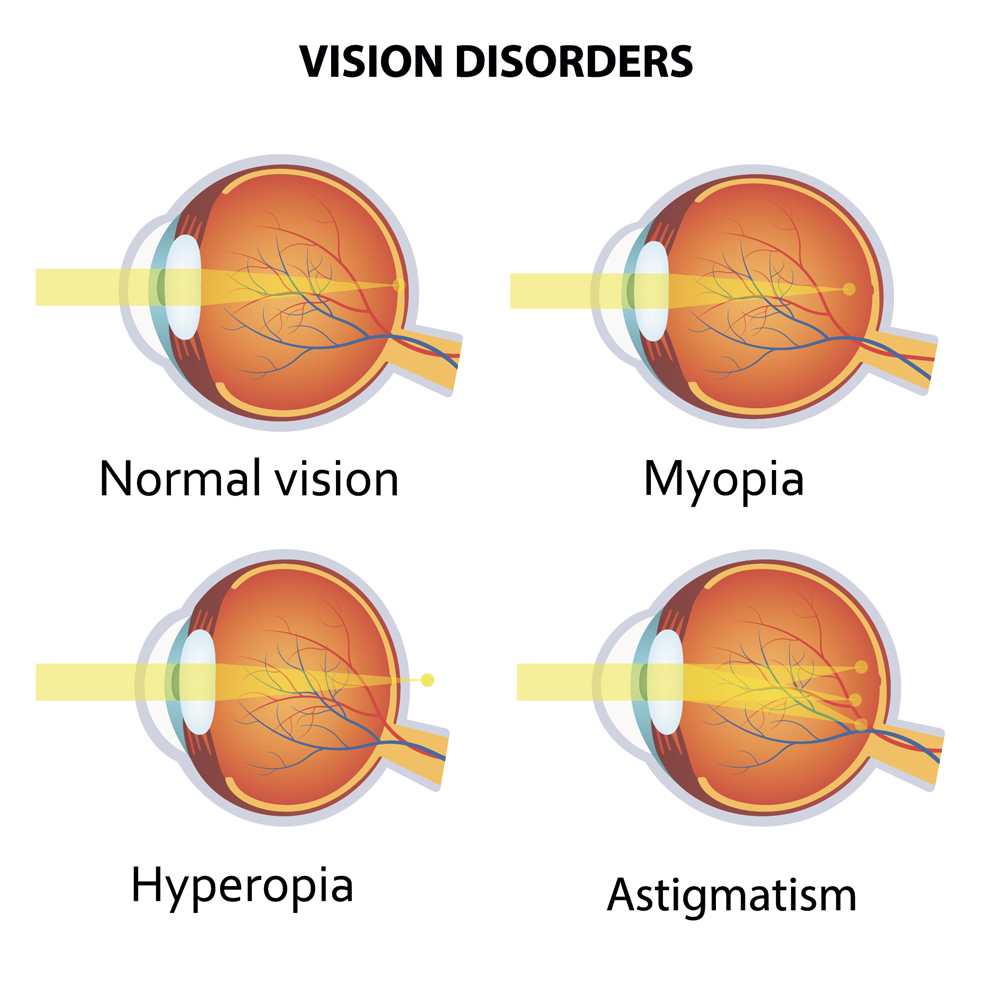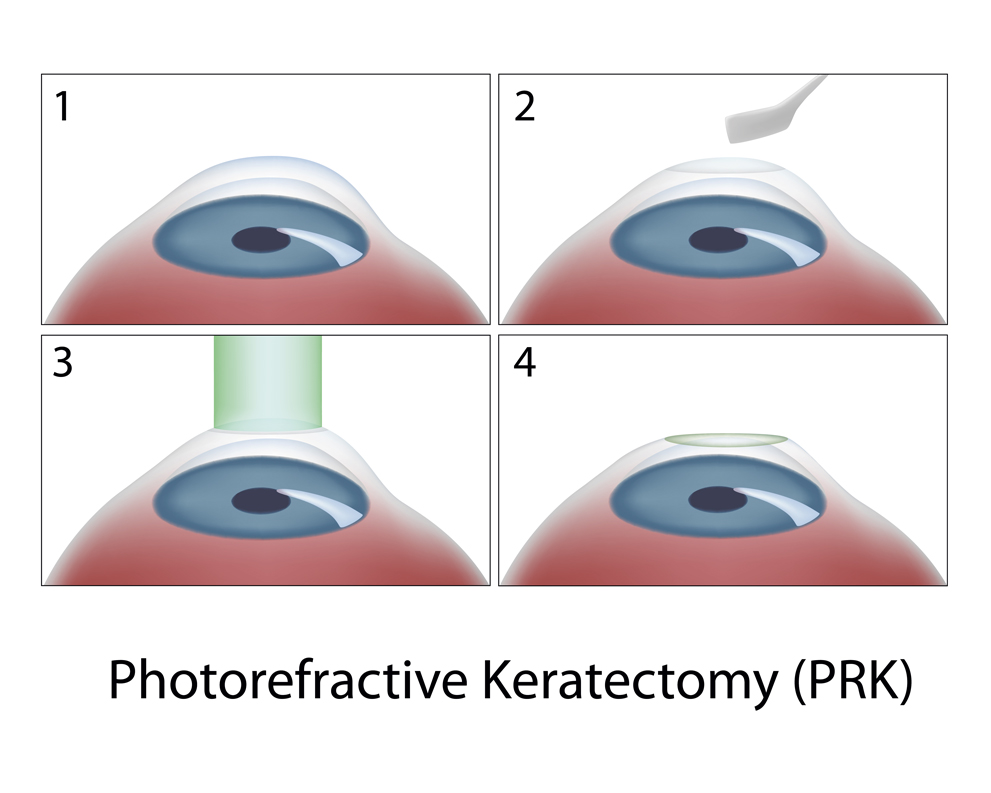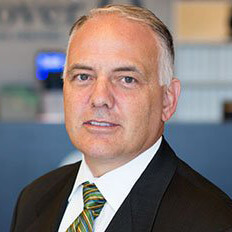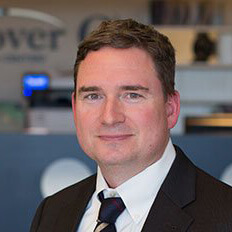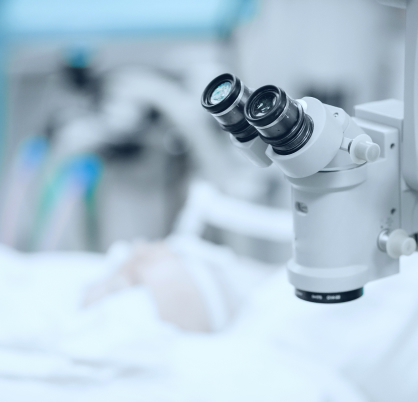Advanced Surface Ablation & PRK in Kansas City, MO
Photorefractive Keratectomy (PRK), also known as Advanced Surface Ablation (ASA), is a laser eye surgery that improves vision by reshaping the cornea. When performed by expert surgeons, PRK is a safe and effective alternative to LASIK. Are you a candidate for PRK in Kansas City? Book your free laser vision correction consult at a Discover Vision Centers clinic today.
What Is PRK Laser Eye Surgery?
PRK was approved by the FDA in 1995 as a vision correction procedure to help patients see clearly without the use of contacts or glasses.
As a LASIK alternative, PRK can help patients who struggle with nearsightedness, farsightedness or astigmatism. Whereas LASIK involves the creation of a flap on the surface of the cornea, PRK involves advanced surface ablation (ASA) which has two steps. The first is to remove the skin surface, epithelium, followed by the excimer laser reshaping the underlying surface. After these steps a bandage contact lens is placed for 1 week.
Once the patient is completely healed, the results of LASIK and PRK are effectively the same.
Types of PRK Procedures We Provide
PRK is used to treat several refractive conditions of the eye including nearsightedness, farsightedness and astigmatism. Monovision or one eye for near and one eye for distance can be considered for those over age 40.
Nearsightedness ( myopia ) with PRK requires the laser to make the center of the cornea flatter by removing more tissue in the center of the cornea versus the periphery.
With PRK for farsightedness the laser removes more tissue peripherally than centrally and this steepens the center of the cornea.
With astigmatism the cornea is not round like a tennis ball. It is shaped more like an American football with a short steep surface in one orientation and a long flatter surface in the other orientation. With PRK the laser reshapes the cornea to make the same curve or rounded shape in all orientations.
Who Is a Candidate for ASA Laser Eye Surgery?
Advanced surface ablation surgery (ASA), also known as PRK, may be for you if you struggle with nearsightedness, farsightedness or astigmatism and are not a candidate for LASIK because of thinner corneas, previous eye surgery, scarring on the cornea as a result of contact lens wear, or certain lifestyle or occupational factors. A few items that make you a good candidate for surgery are:
- Being at least 18 years old
- A stable glasses or contact lens prescription over the last 12 months
- Overall good ocular health
- A good understanding of current and future expectations of what refractive surgery can deliver
At your free vision correction consultation at Discover Vision Centers, you’ll work together with refractive surgery doctors to decide which vision correction surgery is best for you.
What to Expect During PRK & ASA Procedure?
Step 1. Pre-Operative Procedures
Prior to your treatment all of your measurements are validated and checked for accuracy. Most patients will take a mild sedative about 40 minutes prior to their procedure and topical numbing drops will be used just prior to the start of your procedure. A lid guard will be placed so you do not have a full lid closure.
Step 2. Prepare The Cornea
Prior to reshaping the underlying tissue with the laser the surface cells are gently removed.
Step 3. Reshape The Cornea
The excimer laser is then used to reshape the cornea so it brings light perfectly into focus on the retina.
Step 4. Protect The Cornea
After the laser is completed a bandage contact lens is placed for comfort. It remains in place for 5-7 days and then is removed.
Most patients will be placed on topical medicated drops for four weeks.
PRK Surgery Recovery
As soon as the laser ablation is done, the healing process begins.
- A bandage or clear contact lens is placed on the eye to allow the epithelium or skin layer to begin to re-cover the eye. This will usually take between 5-7 days and is the most uncomfortable part of the healing. In the first 3-4 days the eyes may burn, tear and be light sensitive. Vision is blurred, but functional. However, you will want to plan for some down time due to the sensitivity that most will experience.
- When the epithelium is healed, the contact lens can be removed. Most will feel like they can resume normal activities at this point, but the vision will still be somewhat blurred. The newly healed epithelium is irregular and will take time to normalize.
- Over the next 4-6 weeks the vision will continue to sharpen and the visual outcome will be excellent, matching that of LASIK and SMILE.
What Are The Benefits of PRK Surgery?
PRK eye surgery is a great alternative for those that may not be a SMILE or LASIK candidate.
- You get the same life changing visual outcome as SMILE and LASIK
- Save money on future glasses and contact lens purchases
- Is the best surgical option for thin corneas
- Is a safer long term surgical option in some corneas having specific anatomical characteristics
- Is a good surgical option for those with pre-existing dry eyes
- There is no flap or incision on the cornea, which means no chance of incisional complications associated with ocular trauma. This may be preferred by those in high contact sports or specific military forces.
What Will My Vision Be Like After Photorefractive Keratectomy (PRK)?
The visual recovery of PRK is longer than that of SMILE or LASIK, but the ending visual outcome is just as good after the extended healing time. After 5-7 days when the bandage contact lens is removed, the vision should be functional. For example, patients are most often comfortable driving a car, but are not able to make out street signs clearly. Words on a computer may be readable, but have a blurred or ghosted image. Vision should improve gradually out to 4-6 weeks.
Why Choose Discover Vision for The Best PRK Surgery in Missouri
Discover Vision Center surgeons have been providing Advanced Surface Ablation / PRK in Kansas City for our patients since it was FDA approved in 1995. Our 6 doctors, two surgeons – Dr. Doane and Dr. Jackson ) and our four specialized refractive surgery optometrists have 140 combined years of experience evaluating and treating patients interested in refractive surgery. Our attention to detail and excellence in patient care are our guiding principles.
How Much Does PRK Eye Surgery Cost in Kansas City?
The price for Advanced Surface Ablation or PRK in Kansas City at Discover Vision Centers is the same as LASIK and SMILE for the same correction. Our pricing begins at $1,800 per eye and is based on the amount of correction needed.
Discover Vision Centers (DVC) offers a number of financing programs to make the cost of your vision correction easy and affordable. Our See Today, Pay Later financing allows you to do just that – see today, and pay later.
You may also be eligible for a PRK military discount or other deductions through your flexible spending account (FSA) or health savings account (HSA).
Our goal is to provide the best surgical option for each individual person based on their prescription and other lifestyle needs. We do not want price to determine or outweigh what is best for any given situation. To get started, schedule a free consultation, virtual or in-person, to determine if you are a candidate, which procedure is right for you and the cost.
Reviews
Schedule PRK Appointment in Kansas City Today
- 100% Free of Charge!
- Save Time
- Meet 1:1 With Our Team Online or In-Person
- Get All Your Questions Answered
- Find Out if You’re a Candidate
- Learn About Affordable Financing Options
Contact us
FAQ
Is PRK laser vision correction painful?
Prior to the PRK operation, you will be given relaxing medications and numbing drops to alleviate any pain during or immediately following surgery. During the treatment, you may experience a bit of pressure on the surface of the eye, but most patients report minimal discomfort, if any. After surgery one can experience light sensitivity for up to 5 days. Once the bandage contact is removed most patients are completely comfortable.
How long does the photorefractive keratectomy (PRK) procedure last?
On the day of your procedure you will want to plan on spending 1-2 hours with us. During the surgery prep, any more questions you may have will be answered and you will be given an oral sedative to help with relaxation during the surgery. The time of the actual procedure is usually 10-15 minutes and you will need a driver to take you home.
Are there any side effects after PRK surgery?
Side effects after PRK are similar to LASIK and SMILE. Most will have some dryness and halos around lights at night. These symptoms will usually resolve over the first 2-3 months after surgery.
What’s the difference between a PRK and LASIK?
In LASIK surgery a flap is made on the corneal surface and the laser removes and reshapes tissue before putting the flap of tissue back in place. PRK does not have an incision. Instead, the skin surface is removed and the laser reshapes the front surface of the cornea. After the laser is complete, the skin layer will heal and recover the surface.
Is PRK more expensive than LASIK eye surgery?
At Discover Vision Centers, the cost of PRK is the same as that of LASIK and SMILE. We are going to give you a recommendation on which surgery best fits your eyes and lifestyle and don’t want a difference in cost to enter into the decision making process.
